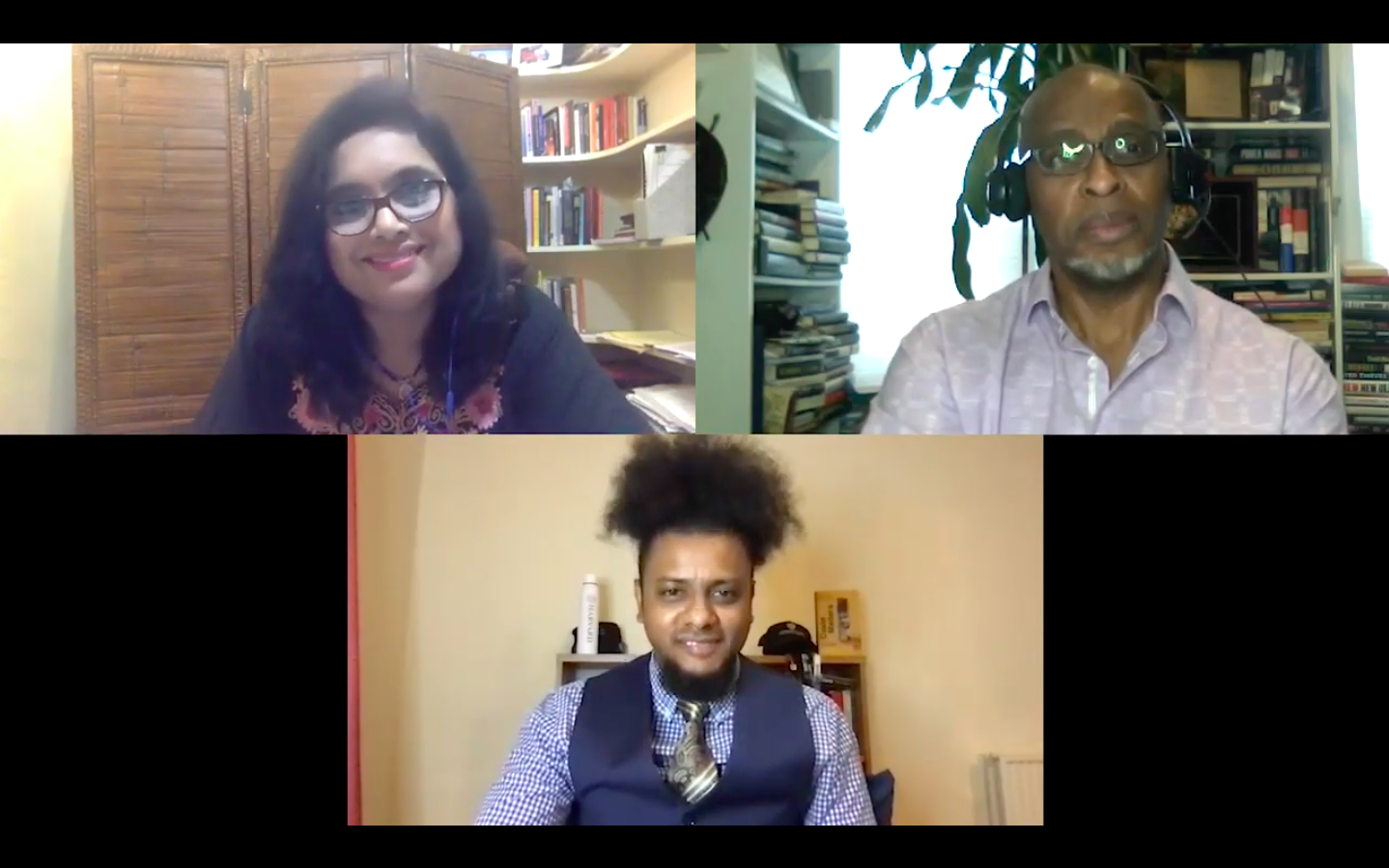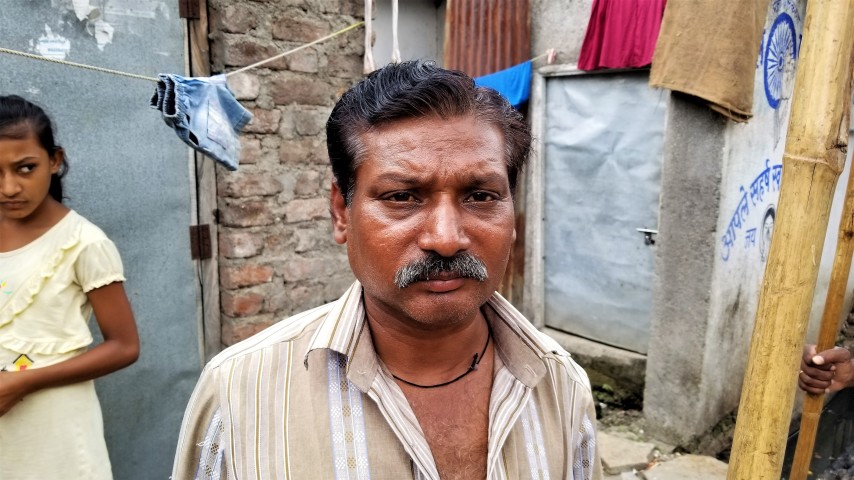
Casteism—a systemic form of discrimination against those from lower castes that dates back millennia in India—is excluded from U.S. constitutional law and seldom discussed among migrant populations. Yet the practice remains "clear, apparent, and painful" for thousands of Indian, Nepalese, and South Asian immigrants around the world, including in the U.S., Pulitzer Center grantee Phillip Martin explained during a Campus Consortium event.
On November 16, 2020, Martin joined award-winning scholar and activist Dr. Suraj Yengde for a conversation on the pervasive ways casteism impacts the lives of South Asian immigrants in the U.S. and Canada, and what can be done to counter it. Rebecca Shah, principal investigator for the Religion and Economic Empowerment Project (REEP), moderated the event, organized in partnership between the Georgetown University Berkley Center for Religion, Peace and World Affairs and the Pulitzer Center.
Martin's Pulitzer Center-supported project Caste Discrimination in the USA, a multi-platform series for WGBH/PRI's The World, was told in part through the eyes of Yengde, who comes from a family of Dalits, or "untouchables." Visiting Yengde's hometown in India in 2018 enabled Martin to witness firsthand how young Dalits' ability to succeed in life "depended on how they were able to move beyond the contours and the content of that which is supposed to shape them all their lives: caste."
Martin and Yengde touched upon the ways casteism manifests in the West today—from determining job prospects to the viability of marriages—and how it relates to other forms of systemic racism in the U.S., which have also gone unacknowledged.
"I think Americans need no explanation on [caste] because they can look into their own backyard and they will find that white supremacists behave exactly the same," said Yengde. He noted that even while facing discrimination themselves in the U.S., South Asian immigrants can still oppress migrants of a lower caste.
"There is a chosen ignorance," he continued. "They don't want to acknowledge that they could be part of a supremacist regime because they are so conditioned to think about themselves as being a minority within a dominant white context."
Yengde, who serves as a senior fellow at the Harvard Kennedy School, described how the social pressure of caste impacted him during his education overseas. When Yengde first moved from India to study in the U.K., he was attacked by a high caste Brahmin from Delhi because the individual "still thought that he could beat me and get away with it."
The discussion also emphasized how Dalit women face especially harsh discrimination, as they are targeted due to both their gender and caste. The problem "doesn't just stop at India's border," Martin said. He pointed to an article by fellow Pulitzer Center grantee Tinku Ray, who interviewed one Dalit woman at a U.S. university who says she was raped by an upper caste Indian student.
"It reminded me, in so many ways, of people of color—Latinx, Black, Asian, Native American women—in the United States who've experienced rape and assault and not [been] believed," Martin said.
When asked how younger generations of Indian Americans should leverage knowledge about caste discrimination to make a positive difference, both Martin and Yengde agreed that open conversations and a concrete acknowledgement that casteism exists are essential.
"To ensure that this dialogue is continued, I think we need to make caste a mainstream conversation," Yengde stressed. "It should not just be a South Asian problem, it should be an American question [as well]. That then will give us more perspective."
To view the full webinar, click here or watch the above embed.







